#history resources
Explore tagged Tumblr posts
Text
THE CANAAN MASTERDOC/POST IS HERE!
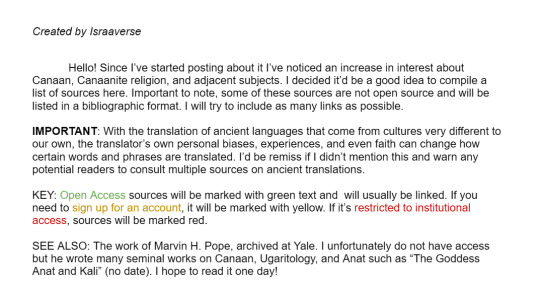
Welcome one and all, and thank you for your patience and feedback! 17 sources and counting, mostly articles but some books -- I've also tried my best to find open access materials but inevitably some things will be restricted, unfortunately. This is formatted more like a bibliography (organized by subject) or directory to orient people towards Canaan and adjacent resources. This is my special interest and it's my greatest joy to share this with people! Please let me know any feedback you have! Anyone with the LINK should be able to access it.
#not art#canaan resources#history resources#i DO dream of labor and the labor is gathering resources to give to people
68 notes
·
View notes
Text
instagram

#instagram#instagram video#instagram post#instagram stuff#social justice#current events#human rights#history#history posting#history tumblr#history side of tumblr#history lesson#history lover#history tag#history and culture#important#important to know#africa#african history#world history#anti imperialism#anti colonialism#fuck imperialism#history resources#history research#history facts#fun facts#facts#interesting facts#black history
23 notes
·
View notes
Text
Great wee resource for anyone looking at the queer history of mental health.
2 notes
·
View notes
Note
It's so cool you're so involved with Lafayette stuff! Do you know if there any good books about his big American tour?
Hi! I'm so sorry I responded THIS late but I'm proud to say I'm going to officially be involved in planning for a future event!!!
as for the books, this is for everyone who's interested, I do have a few. These are books that is only about his tour
Marquis de Lafayette Returns: A Tour of America's National Capital Region by Elizabeth Reese
Lafayette in America in 1824 and 1825Journal of a Voyage to the United States by August Levasseur, translated into English by Alan R. Hoffman (levasseur is his secretary and there's no better way to find info than in his journals. Alan Hoffman is the president of the American Friends of Lafayette. I met him before a few times. He's very nice)
I am not sponsored, I just like to yap about this a lot but do check out the website Lafayette200. It's made by the American friends of Lafayette and there's a travel stories which you can click on, for example, Yorktown, and there will be an audio for it along with pictures. I was just there for the releasing of the new New York section. All the stories are written by AFL. very awsome.
That's all I recommend for now. again, sorry for the late respond. I hope you're still interested in this!
#marquis de lafayette#lafayette's farewell tour#lafayettes farewell tour#lafayette200#american revolution#amrev#history#historical resources#history resources
3 notes
·
View notes
Text
Drinking like a Regency Buck - Part 1
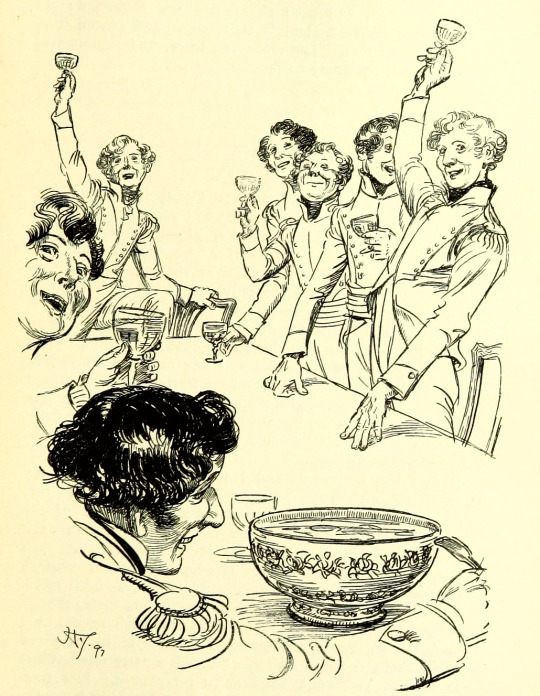
What if you were praised for drinking lots of alcohol? In Regency England, you could!
Nowadays, we think that immoderate drinking is a sign of weakness. However, back in the Regency era, it was actually considered to be something between a neutral trait and a source of pride. There was even an expression - ‘Drunk as a lord’!
Another expression on the subject was ‘three-bottle man’. It described a man who could consume 3 bottles of port throughout one day, and remain on his feet. Again, it was not a derogatory expression. It was not unusual to have several dinner guests like that at one table.
Strong port indeed was the drink of choice for Regency men. It used to be different - earlier in the 18th century they preferred light wines and claret. However, after the Seven Years War, blame for the country’s poor performance in the conflict was laid at the feet of the men’s ‘effeminate’ and ‘Frenchified’ drinking habits. So, they set out to prove how manly they were afterwards. That’s where port came in.
Henceforth, claret was usually only served to women in special claret cups. Though, I do have to say, that Regency ladies were far from the Victorian ideals of propriety and sobriety, too - quite a lot of them drank fortified wine such as madeira!
Due to port’s popularity, plenty of people ended up trying to play foul with its quality for the sake of profit. Quite often, port was adulterated by raisin wines, or cheap Spanish wine that had an admittedly metal name of ‘bullock’s blood’. Even worse, some just used berry-dye for the same purposes.
However, even good port had to be ‘fined’, or clarified, before you could drink it. There was a great range of things used for that purpose. Some were mundane enough, like egg, salt, or skimmed milk. Some were weirder, like oyster shells, alabaster, dry sand, or my favorite one - powdered marble.
#regency#1810s#regency era#1800s#1790s#regency history#history resources#writing resources#regency romance
11 notes
·
View notes
Text
[05/25/24] Ancient History Resources Dump
An attempt at documenting the resources I’ve discovered while educating myself on Ancient History during this entire Israel vs Palestine tragedy. I will put the title of the website with the link embed and a short summary of the content I found. If there is any misinformation, etc, I'm not like stanning these websites. I'm still learning. I just wanted to share some things I found.
The Oracc Project List - Website that lists various projects run by Professors/Researchers to present/offer online editions of discovered Ancient Documents, Objects, Pantheons, etc.
State Archives of Assyria Online - Provides editions of texts from the Neo-Assyrian period, organized by genre. Has links to other websites they are affiliated/working with for other Assyrian resources I’ll link below. Knowledge and Power
Ancient History Sourcebook - this entire website is filled with links to resources, some are dead but a lot are not. It also has links to Medieval Sourcebook, Modern History and Byzantine Studies Page. As well as Other History Sourcebooks like African, East Asian, Indian, Islamic, Jewish, etc. Just check it out. Notable pages: Hellenes & Phoenicians, c. 430 BCE
The Proceedings of the Friesian School, Fourth Series - Non-peer-reviewed electronic journal and archive of philosophy. Tbh, I just thought this website was cool. I haven’t looked at everything in it. So take it with a grain or two of salt. Notable pages: Index of Egyptian History, Languages with more than 30,000,000 Speakers as of 2005, classified by Civilization
Factsanddetails - just a place of links for facts and details. I’m linking directly to Mesopotamian History and Religion but you can find all kinds of links for other things.
HyperHistory - dope ass website of over 3,000 files covering 3,000 years of world history that is in a timeline. Very early 2000s.
The World Chronology Project (Then again…) - World History section of a chronology website.
Assyria Online - Website dedicated to Assyrian culture, people, etc.
Livius.org - Articles on Ancient History, currently at 4,381 pages. 10,700 original illustrations.
Phoenicia.org - Worlds largest compilation of Phoenician resources & studies. The owner has a lot of hot takes on Phoenicians and ancient history but there are alot of good resources and you can decide if you agree with his hot takes or not.
YouTube Videos/Channels
Study of Antiquity and the Middle Ages The Real Origins of the Philistines and Palestinians The Phoenicians and the Formation of the Western World ~ Dr. Scott Epimetheus Who were the Philistines? (History of the Philistines explained) Who were the Canaanites? (The Land of Canaan, Geography, People and History)
History with Cy Who were the Phoenicians? A Quick Look at Phoenician History Introduction to Ancient Canaan and the Canaanites
edit: put the wrong date in the title
#ancient history#palestine#israel#jewish resources#jewish history#ancient history resources#resources#history resources#online resources
8 notes
·
View notes
Text
@dei2dei good name resource!
A Guide to Historically Accurate Regency-Era Names

I recently received a message from a historical romance writer asking if I knew any good resources for finding historically accurate Regency-era names for their characters.
Not knowing any off the top of my head, I dug around online a bit and found there really isn’t much out there. The vast majority of search results were Buzzfeed-style listicles which range from accurate-adjacent to really, really, really bad.
I did find a few blog posts with fairly decent name lists, but noticed that even these have very little indication as to each name’s relative popularity as those statistical breakdowns really don't exist.
I began writing up a response with this information, but then I (being a research addict who was currently snowed in after a blizzard) thought hey - if there aren’t any good resources out there why not make one myself?
As I lacked any compiled data to work from, I had to do my own data wrangling on this project. Due to this fact, I limited the scope to what I thought would be the most useful for writers who focus on this era, namely - people of a marriageable age living in the wealthiest areas of London.
So with this in mind - I went through period records and compiled the names of 25,000 couples who were married in the City of Westminster (which includes Mayfair, St. James and Hyde Park) between 1804 to 1821.
So let’s see what all that data tells us…
To begin - I think it’s hard for us in the modern world with our wide and varied abundance of first names to conceive of just how POPULAR popular names of the past were.
If you were to take a modern sample of 25-year-old (born in 1998) American women, the most common name would be Emily with 1.35% of the total population. If you were to add the next four most popular names (Hannah, Samantha, Sarah and Ashley) these top five names would bring you to 5.5% of the total population. (source: Social Security Administration)
If you were to do the same survey in Regency London - the most common name would be Mary with 19.2% of the population. Add the next four most popular names (Elizabeth, Ann, Sarah and Jane) and with just 5 names you would have covered 62% of all women.
To hit 62% of the population in the modern survey it would take the top 400 names.
The top five Regency men’s names (John, William, Thomas, James and George) have nearly identical statistics as the women’s names.
I struggled for the better part of a week with how to present my findings, as a big list in alphabetical order really fails to get across the popularity factor and also isn’t the most tumblr-compatible format. And then my YouTube homepage recommended a random video of someone ranking all the books they’d read last year - and so I present…
The Regency Name Popularity Tier List
The Tiers
S+ - 10% of the population or greater. There is no modern equivalent to this level of popularity. 52% of the population had one of these 7 names.
S - 2-10%. There is still no modern equivalent to this level of popularity. Names in this percentage range in the past have included Mary and William in the 1880s and Jennifer in the late 1970s (topped out at 4%).
A - 1-2%. The top five modern names usually fall in this range. Kids with these names would probably include their last initial in class to avoid confusion. (1998 examples: Emily, Sarah, Ashley, Michael, Christopher, Brandon.)
B - .3-1%. Very common names. Would fall in the top 50 modern names. You would most likely know at least 1 person with these names. (1998 examples: Jessica, Megan, Allison, Justin, Ryan, Eric)
C - .17-.3%. Common names. Would fall in the modern top 100. You would probably know someone with these names, or at least know of them. (1998 examples: Chloe, Grace, Vanessa, Sean, Spencer, Seth)
D - .06-.17%. Less common names. In the modern top 250. You may not personally know someone with these names, but you’re aware of them. (1998 examples: Faith, Cassidy, Summer, Griffin, Dustin, Colby)
E - .02-.06%. Uncommon names. You’re aware these are names, but they are not common. Unusual enough they may be remarked upon. (1998 examples: Calista, Skye, Precious, Fabian, Justice, Lorenzo)
F - .01-.02%. Rare names. You may have heard of these names, but you probably don’t know anyone with one. Extremely unusual, and would likely be remarked upon. (1998 examples: Emerald, Lourdes, Serenity, Dario, Tavian, Adonis)
G - Very rare names. There are only a handful of people with these names in the entire country. You’ve never met anyone with this name.
H - Virtually non-existent. Names that theoretically could have existed in the Regency period (their original source pre-dates the early 19th century) but I found fewer than five (and often no) period examples of them being used in Regency England. (Example names taken from romance novels and online Regency name lists.)
Just to once again reinforce how POPULAR popular names were before we get to the tier lists - statistically, in a ballroom of 100 people in Regency London: 80 would have names from tiers S+/S. An additional 15 people would have names from tiers A/B and C. 4 of the remaining 5 would have names from D/E. Only one would have a name from below tier E.
Women's Names
S+ Mary, Elizabeth, Ann, Sarah
S - Jane, Mary Ann+, Hannah, Susannah, Margaret, Catherine, Martha, Charlotte, Maria
A - Frances, Harriet, Sophia, Eleanor, Rebecca
B - Alice, Amelia, Bridget~, Caroline, Eliza, Esther, Isabella, Louisa, Lucy, Lydia, Phoebe, Rachel, Susan
C - Ellen, Fanny*, Grace, Henrietta, Hester, Jemima, Matilda, Priscilla
D - Abigail, Agnes, Amy, Augusta, Barbara, Betsy*, Betty*, Cecilia, Christiana, Clarissa, Deborah, Diana, Dinah, Dorothy, Emily, Emma, Georgiana, Helen, Janet^, Joanna, Johanna, Judith, Julia, Kezia, Kitty*, Letitia, Nancy*, Ruth, Winifred>
E - Arabella, Celia, Charity, Clara, Cordelia, Dorcas, Eve, Georgina, Honor, Honora, Jennet^, Jessie*^, Joan, Joyce, Juliana, Juliet, Lavinia, Leah, Margery, Marian, Marianne, Marie, Mercy, Miriam, Naomi, Patience, Penelope, Philadelphia, Phillis, Prudence, Rhoda, Rosanna, Rose, Rosetta, Rosina, Sabina, Selina, Sylvia, Theodosia, Theresa
F - (selected) Alicia, Bethia, Euphemia, Frederica, Helena, Leonora, Mariana, Millicent, Mirah, Olivia, Philippa, Rosamund, Sybella, Tabitha, Temperance, Theophila, Thomasin, Tryphena, Ursula, Virtue, Wilhelmina
G - (selected) Adelaide, Alethia, Angelina, Cassandra, Cherry, Constance, Delilah, Dorinda, Drusilla, Eva, Happy, Jessica, Josephine, Laura, Minerva, Octavia, Parthenia, Theodora, Violet, Zipporah
H - Alberta, Alexandra, Amber, Ashley, Calliope, Calpurnia, Chloe, Cressida, Cynthia, Daisy, Daphne, Elaine, Eloise, Estella, Lilian, Lilias, Francesca, Gabriella, Genevieve, Gwendoline, Hermione, Hyacinth, Inez, Iris, Kathleen, Madeline, Maude, Melody, Portia, Seabright, Seraphina, Sienna, Verity
Men's Names
S+ John, William, Thomas
S - James, George, Joseph, Richard, Robert, Charles, Henry, Edward, Samuel
A - Benjamin, (Mother’s/Grandmother’s maiden name used as first name)#
B - Alexander^, Andrew, Daniel, David, Edmund, Francis, Frederick, Isaac, Matthew, Michael, Patrick~, Peter, Philip, Stephen, Timothy
C - Abraham, Anthony, Christopher, Hugh>, Jeremiah, Jonathan, Nathaniel, Walter
D - Adam, Arthur, Bartholomew, Cornelius, Dennis, Evan>, Jacob, Job, Josiah, Joshua, Lawrence, Lewis, Luke, Mark, Martin, Moses, Nicholas, Owen>, Paul, Ralph, Simon
E - Aaron, Alfred, Allen, Ambrose, Amos, Archibald, Augustin, Augustus, Barnard, Barney, Bernard, Bryan, Caleb, Christian, Clement, Colin, Duncan^, Ebenezer, Edwin, Emanuel, Felix, Gabriel, Gerard, Gilbert, Giles, Griffith, Harry*, Herbert, Humphrey, Israel, Jabez, Jesse, Joel, Jonas, Lancelot, Matthias, Maurice, Miles, Oliver, Rees, Reuben, Roger, Rowland, Solomon, Theophilus, Valentine, Zachariah
F - (selected) Abel, Barnabus, Benedict, Connor, Elijah, Ernest, Gideon, Godfrey, Gregory, Hector, Horace, Horatio, Isaiah, Jasper, Levi, Marmaduke, Noah, Percival, Shadrach, Vincent
G - (selected) Albion, Darius, Christmas, Cleophas, Enoch, Ethelbert, Gavin, Griffin, Hercules, Hugo, Innocent, Justin, Maximilian, Methuselah, Peregrine, Phineas, Roland, Sebastian, Sylvester, Theodore, Titus, Zephaniah
H - Albinus, Americus, Cassian, Dominic, Eric, Milo, Rollo, Trevor, Tristan, Waldo, Xavier
& Men were sometimes given a family surname (most often their mother's or grandmother's maiden name) as their first name - the most famous example of this being Fitzwilliam Darcy. If you were to combine all surname-based first names as a single 'name' this is where the practice would rank.
*Rank as a given name, not a nickname
+If you count Mary Ann as a separate name from Mary - Mary would remain in S+ even without the Mary Anns included
~Primarily used by people of Irish descent
^Primarily used by people of Scottish descent
>Primarily used by people of Welsh descent
I was going to continue on and write about why Regency-era first names were so uniform, discuss historically accurate surnames, nicknames, and include a little guide to finding 'unique' names that are still historically accurate - but this post is already very, very long, so that will have to wait for a later date.
If anyone has any questions/comments/clarifications in the meantime feel free to message me.
Methodology notes: All data is from marriage records covering six parishes in the City of Westminster between 1804 and 1821. The total sample size was 50,950 individuals.
I chose marriage records rather than births/baptisms as I wanted to focus on individuals who were adults during the Regency era rather than newborns. I think many people make the mistake when researching historical names by using baby name data for the year their story takes place rather than 20 to 30 years prior, and I wanted to avoid that. If you are writing a story that takes place in 1930 you don’t want to research the top names for 1930, you need to be looking at 1910 or earlier if you are naming adult characters.
I combined (for my own sanity) names that are pronounced identically but have minor spelling differences: i.e. the data for Catherine also includes Catharines and Katherines, Susannah includes Susannas, Phoebe includes Phebes, etc.
The compound 'Mother's/Grandmother's maiden name used as first name' designation is an educated guesstimate based on what I recognized as known surnames, as I do not hate myself enough to go through 25,000+ individuals and confirm their mother's maiden names. So if the tally includes any individuals who just happened to be named Fitzroy/Hastings/Townsend/etc. because their parents liked the sound of it and not due to any familial relations - my bad.
I did a small comparative survey of 5,000 individuals in several rural communities in Rutland and Staffordshire (chosen because they had the cleanest data I could find and I was lazy) to see if there were any significant differences between urban and rural naming practices and found the results to be very similar. The most noticeable difference I observed was that the S+ tier names were even MORE popular in rural areas than in London. In Rutland between 1810 and 1820 Elizabeths comprised 21.4% of all brides vs. 15.3% in the London survey. All other S+ names also saw increases of between 1% and 6%. I also observed that the rural communities I surveyed saw a small, but noticeable and fairly consistent, increase in the use of names with Biblical origins.
Sources of the records I used for my survey:
Ancestry.com. England & Wales Marriages, 1538-1988 [database on-line].
Ancestry.com. Westminster, London, England, Church of England Marriages and Banns, 1754-1935 [database on-line].
13K notes
·
View notes
Text
I love Archive.org so much, especially for my weirdly obscure research purposes
Do you want to know how a particular subject would have been treated in a certain time period but your preferred search engine isn’t getting you any results?
Go to Archive.org, click on the “books” section, select “search text” and type in your search term, then filter the results to your desired time period!
You’ll find old newspapers and books from the time. A great place for finding primary sources
I admit that this still isn’t the best way to do things, but it’s more reliable than Google
1 note
·
View note
Text
this is stupid niche so im not gonna add it to the canaan masterpost or whatever but look at this awesome open-access journal i found: Ancestral origins: northern Levantine Funerary Palaces in the Middle Bronze Age, Holly A. Winter
totally gonna hunker down with this one bc my own knowledge of funerary practice is sorely lacking
12 notes
·
View notes
Text










Sources:
Wheatcroft: http://www.melgrosh.unimelb.edu.au/documents/SGW-UkranianFamine_mortality.pdf
Tauger: http://carlbeckpapers.pitt.edu/ojs/index.php/cbp/article/view/89/90
Getty: http://www.cercec.fr/materiaux/doc_membres/Gabor%20RITTERSPORN/Victims%20of%20the%20Gulag.pdf
Prison Mortality In the USSR (the source is in russian): http://www.demoscope.ru/weekly/2007/0313/tema06.php
Prison Mortality in Modern Russia: https:// inmoscowsshadows.wordpress.com/2013/02/28/russian-prisons-getting-more-lethal/
Prison Mortality in the USA: https://www.bjs.gov/ content/pub/pdf/msp0114st.pdf
Any other sources are internally cited.
EDIT: I know some people will retort to this by saying something like "that number is still too high, nothing justifies the death of so many people", so I just want to clarify: Any single death of a person is a tragedy, so yes the numbers are still too high because any number of people dying is too high. It's always a huge tragedy when anybody dies. But the point is to have an honest understanding of what actually happened in the Soviet Union so we can assess it's overall performance as a system and compare that to the alternative, i.e. capitalism, because we ultimately have to make a choice about what system we want to adopt. And people dishonestly smearing the Soviet Union with the "20 gorillion mass murder genocide" claims just get in the way of us making that rational choice about the future of humanity.
Plus on top of all that, I just value honesty and the truth as basic moral virtues in general, so I think it's immoral to go along with lies and misinformation imo.
Dishonesty should be combatted and we should seek the truth from facts.
#social justice#current events#human rights#history#history posting#history tumblr#history side of tumblr#russia#ussr#soviet union#stalin#lenin#history lesson#history lover#important#important to know#communism#socialism#recent history#joseph stalin#vladimir lenin#history resources#fun facts#interesting facts#facts#political#political posting#politics
19 notes
·
View notes
Text
The fact that we, Arabic-speaking average people(aka non-journalists), have to keep up with translating Palestinian posts from Arabic to English to avoid having Western Media/Pro-Zionists mistranslate on purpose, says enough about how we all lost trust in the media. From the "there's a list" guy who was standing in front of a calendar and condemning the days of the week, to the BBC's mistranslation of a freed Palestinian hostage's interview. I will try my best to keep translating whatever I can find, and I encourage my fellow bilingual/multilingual Arabs to do the same. It's already sad enough that Palestinian journalists and even children have to use English in videos instead of their native tongue in order to get the world leaders' attention.
Please keep speaking about Palestine.
#free palestine#palestine#from the river to the sea palestine will be free#gaza#palestine resources#signal boost#social justice#colonialism#imperialism#jerusalem#history#free gaza#united nations#united states#united kingdom#merry christmas#Christmas#happy holidays#thanksgiving#winter#halloween
18K notes
·
View notes
Text
This pride month, I'd love if people could take a moment to learn about and remember Mary Mudge. A trans woman who lived and died just down the road from me ~150 years ago.
Most of what we know of her comes from two newspaper articles and the census records:
From the census:
1851: Mary Mudge resides at the Old House in Milton Abbot, she is an unmarried farmhand and lives with a lodger Elizabeth Condon (or possibly Langdon).
1861: Now a 56-year-old farmer of 9 acres. Still living at the Old house with Elizabeth and 3 other boarders.
1871: A 66-year-old Mary now lives alone at Cottage No. 3 on the Duke of Bedford’s estate. Her profession is listed as 'formerly dairymaid' and her place of birth is listed as Lamerton, Devon although it is unknown whether that is true.
1881: Towards the end of her life, before entering the union infirmary, Mary's address is listed as simply as ‘Green, Milton Abbot’, she resides there with a family (Richard Northcott, a 31 year-old gardener, his wife and two daughters) and is referred to as an aunt. This contradicts the first newspaper article, which indicated she lived alone before entering the infirmary. I have no correct idea, although I tend to lean towards it being the census.
From Reynold’s Newspaper reported on March 31, 1889.
A MAN EIGHTY FIVE YEARS IN WOMAN’S CLOTHES There has just died in Tavistock Workhouse an old person eighty five years of age, who was known to the authorities as Mary Mudge, and until some years ago kept a small dairy in that town. On the body being prepared for burial, it was discovered to be that of a man, although previously no suspicion had been entertained as to the sex of Miss Mudge, as deceased had long been called, and had all outward appearance of a woman. No cause has been assigned for the disguise.
From The Bury and Norwich post.
Not even the oldest inhabitant had any recollection of Mary’s childhood and there is no registration to be found. The earliest recollection of her in the village is a full grown young woman, when she was then noticeable for her particularly large size. ‘That girl ought to have been a boy’ seems to have been a common saying at the time. ‘She seemed a very quiet retiring sort,’ said the old villager. ‘We never suspected anything. I was never so struck in my life as when I heard of it after her death.’ Nobody seemed to have known much about Mary. She had lived by herself since her sister’s death, shut up in her lonely house. The two or three cows supplied her bodily needs, and the village doctor does not remember ever giving her medicine; but sickness entered her house four years ago and found Mary Mudge alone in her lonely dwelling. She was recommended to the union infirmary where she entered in July 1885, and has since remained until her death.
I think of Mary all the time. She lived a full life, 85 years. Was she happy? She had a community, to at least some degree. Was her sister a blood relative? Did she know? Did anyone she lived with over the years know? Did she get to be seen and accepted by those around her? People tend to refer to her as she even after her death, why? Would she of been 'a quiet, retiring sort' if she'd been born in a body she felt comfortable in? What did she leave behind? When did she decide she had to live as her true self? Did she experience gender euphoria wearing a dress for the first time? Did she choose her name? Did the alliteration make her smile?
There is so much I will never know about her; the things she loved are lost to history, but I still feel such a strong kinship to this woman. The queer experience is so rarely documented when it comes the working class, just how common was it to move away and live as the opposite gender? We can't know, so I choose to believe it was many, and that they lived full and happy lives.
#i've cried over this woman alot#i really hope she was happy and loved#i don't want her to be lost to history please remember her#sources are from the lgbthistoryuk archives btw#a great resource for all your queer UK history needs#trans pride#trans#pride#pride month#queer#queer history
1K notes
·
View notes
Text
Topics List: Sweets
Word lists may be helpful for some people to overcome writer's block.
CAKES
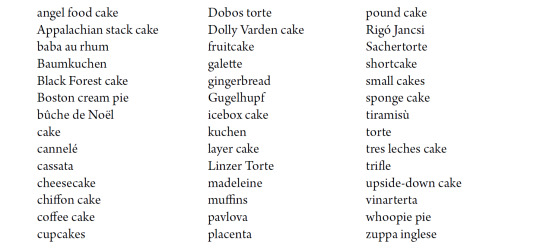
CANDY

CHOCOLATE

CONFECTIONS
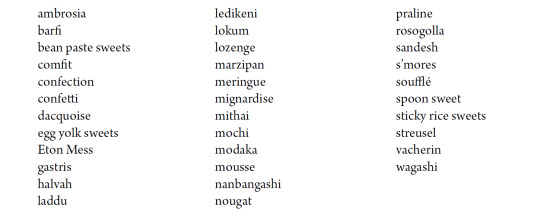
COOKIES

Source ⚜ More: Word Lists ⚜ Topics Lists ⚜ Part 2 ⚜ Writing Resources PDFs
#food#writeblr#langblr#writers on tumblr#spilled ink#topics#writing inspiration#topics list#poets on tumblr#literature#words#writer's block#writing prompt#studyblr#creative writing#poetry#lit#writing reference#sweets#dessert#food history#writing resources
3K notes
·
View notes
Text
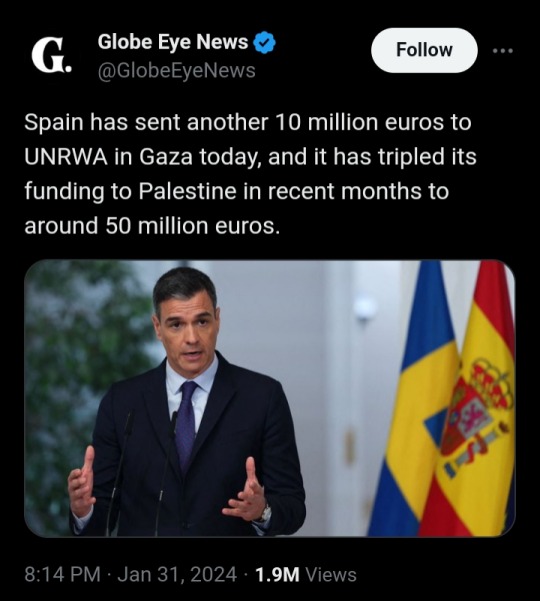
Thank you Spain, we'll remember your good deeds.
#free palestine#free gaza#spain#spain chosing to be with the right side of history#gaza#palestine#palestine resources#social justice#gaza genocide#gaza strip#imperialism#israel is a terrorist state#yemen#south africa#al quds#jerusalem
6K notes
·
View notes
Text
"I Am A Transwoman. I am In The Closet. I Am Not Coming Out." by Jennifer Coates
here is an extremely important article written by a trans woman that touches on why man hating, and assuming certain people to be men affects more than just men. this behavior affects trans women and transfemmes and we need to care about not profiling people who are in our spaces and lives
#lgbtqia#lgbtq#lgbt#queer#trans#trans women#trans woman#transfemme#transfeminine#transfem#tgirl#mtf#lgbt community#lgbtq community#trans community#transgender community#transbian#trans lesbian#transfeminism#trans history#queer history#queer women#resources#queer literature#trans literature
2K notes
·
View notes
Text
Beginner’s Guide to Medieval Arthuriana
Just starting out at a loss for where to begin?
Here’s a guide for introductory Medieval texts and informational resources ordered from most newbie friendly to complex. Guidebooks and encyclopedias are listed last.
All PDFs link to Google drive and can be found at @arthurianpreservationproject. This post will be updated as needed.
Pre-Existing Resources
Hi-Lo Arthuriana
Medieval Literature by Language
Retellings by Date
Films by Date
TV Shows by Date
Documentaries by Date
If this guide was helpful for you, please consider supporting me on Ko-Fi!
Medieval Literature

Page (No Knowledge Required)
The Vulgate Cycle | Navigation Guide | Vulgate Reader (French)
The Wedding of Sir Gawain and Dame Ragnelle (Middle English)
The Marriage of Sir Gawain (Middle English)
Sir Gawain and The Green Knight (Middle English)
Sir Lanval (French) | Sir Launfal (Middle English)
The Welsh Triads (Welsh)
Le Morte d'Arthur by Sir Thomas Malory (Middle English)
Squire (Base Knowledge Recommended)
Owain (Welsh) | Yvain (French) | Iwein (German) | Ywain (Middle English) | Íven (Norse)
Geraint (Welsh) | Erec (French)| Erec (German) | Erex (Norse)
King Artus (Hebrew)
Morien (Dutch)
Knight (Extensive Knowledge Recommended)
The History of The King's of Britain by Geoffrey of Monmouth (Latin)
Alliterative Morte Arthure (Middle English)
The Marvels of Rigomer (French)
Jaufre (Occitan/Tagalog)
Le Bel Inconnu (French) | Gliglois (French) | Wigalois (German) | Vidvilt (Yiddish) | Sir Libeaus Desconus (Middle English) | Carduino (Italian)
Here Be Dragons (Weird or Arthurian Adjacent)
The Crop-Eared Dog (Irish)
Perceforest | A Perceforest Reader (French)
Le Roman de Silence (French)
Grail Quest
Peredur (Welsh) | Perceval + Continuations (French) | Parzival (German) | Parceval (Norse)
The Crown by Heinrich von dem Türlin (Diu Crône) (German)
The High Book of The Grail (Perlesvaus) (French)
The History of The Holy Grail (Vulgate) (French)
The Quest for the Holy Grail (Vulgate) (French)
The Quest for The Holy Grail (Post-Vulgate) (French)
Merlin and The Grail by Robert de Boron (French)
The Legend of The Grail (French)
Lancelot Texts
Knight of The Cart by Chrétien de Troyes (French)
Lanzelet by Ulrich von Zatzikhoven (German)
Spanish Lancelot Ballads (Spanish)
The Lancelot Compilation (Dutch)
Gawain Texts
Sir Gawain and The Green Knight (Middle English)
The Wedding of Sir Gawain and Dame Ragnelle (Middle English)
Sir Gawain Eleven Romances and Tales (Middle English)
Sir Gawain and The Lady of Lys (French)
The Knight of The Two Swords (French)
The Turk and Sir Gawain (Middle English)
Perilous Graveyard (French)
Roman van Walewein (Dutch)
De Ortu Waluuanii (Latin)
Valvens Þáttr (Norse)
Tristan/Isolde Texts
Béroul & Les Folies (French)
The Romance of Tristan (Prose Tristan) (French)
Tristan and The Round Table (La Tavola Ritonda) | Italian Name Guide (Italian)
Tristano Panciatichiano (Italian)
Tristano Riccardiano (Italian)
Tristan and Iseult by Gottfried von Strassburg (German)
Byelorussian Tristan (Russian)
The Tristan Legend (Norse)
Educational/Informational Resources
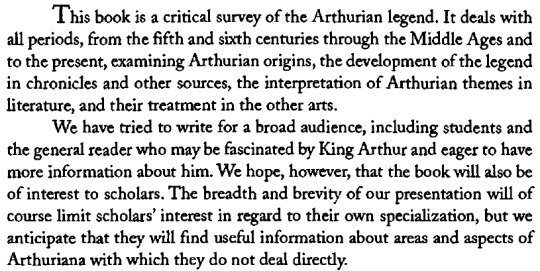
Encyclopedias & Handbooks
The Arthurian Companion by Phyllis Ann Karr
The New Arthurian Encyclopedia by Norris J. Lacy
The Arthurian Handbook by Norris J. Lacy & Geoffrey Ashe
The Arthurian Name Dictionary by Christopher W. Bruce
The King Who Was and Will Be by Kevin Crossley-Holland
Warriors of Arthur by John Matthews, Bob Stewart, & Richard Hook
Essays & Guides
A Companion to Chrétien de Troyes edited by Joan Tasker & Norris J. Lacy
A Companion to Malory edited by Elizabeth Archibald
A Companion to The Lancelot-Grail Cycle edited by Carol Dover
A Companion to the Gawain-Poet edited by Derek Brewer
Arthur in Welsh Medieval Literature by O. J. Padel
Diu Crône and The Medieval Arthurian Cycle by Neil Thomas
Wirnt von Gravenberg's Wigalois: Intertextuality & Interpretation by Neil Thomas
The Legend of Sir Lancelot du Lac by Jessie Weston
The Legend of Sir Gawain by Jessie Weston
#arthuriana#arthurian legend#arthurian mythology#arthurian literature#king arthur#queen guinevere#sir gawain#sir lancelot#sir perceval#sir percival#sir galahad#sir tristan#queen isolde#history#resource#my post
2K notes
·
View notes